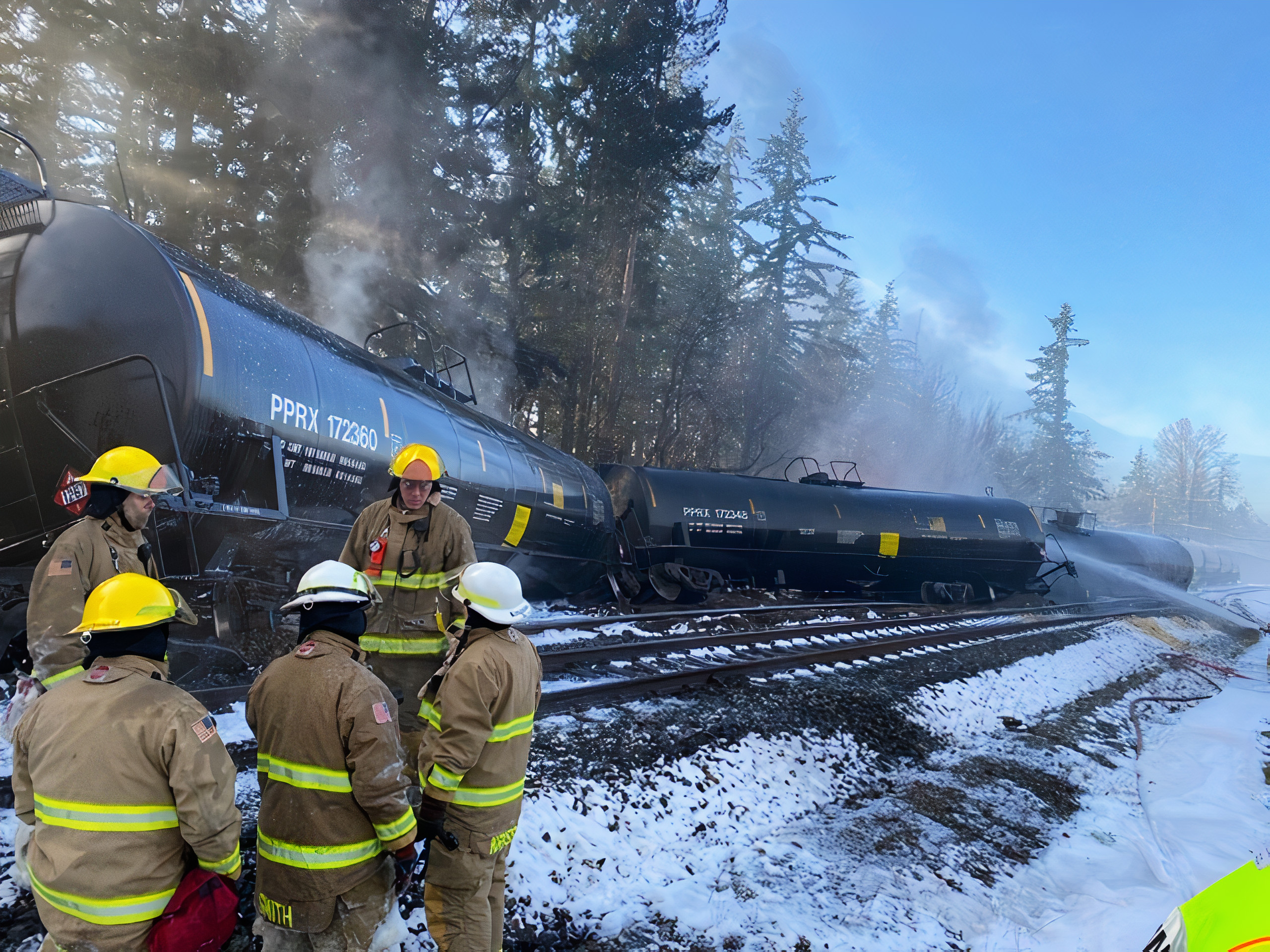A Burlington Northern Santa Fe (BNSF) freight train transporting extremely volatile Bakken crude oil derailed today near Custer, Whatcom County, causing a fire and prompting authorities to ask nearby residents to evacuate as a precaution.
There were no fatalities and no injuries were reported, though the derailment did result in an oil spill. Seven tank cars went off the tracks, with two catching fire, about twenty minutes before noon. Firefighters responded and had the conflagration mostly contained by 3 PM in the afternoon, though evacuation orders were not lifted until an hour and forty-five minutes later.
Custer is located about halfway between Blaine and Ferndale, which are both north of Bellingham and the Lummi Reservation.

The derailment occurred not far from Interstate 5’s Zell Road exit, and the highway was temporarily closed by the Washington State Patrol while the blaze was being brought under control. I‑5 was subsequently reopened.
My Ferndale News, which was present at a press conference called by the authorities after the incident occurred, reported that the following details were shared regarding the oil train and its derailment:
- the BNSF train was heading northbound after having just passed through Ferndale
- it was traveling to the Phillips 66 Ferndale Refinery
- 108 cars made up the train, many containing Bakken crude oil
- there were two crew members onboard the train
- Seven cars derailed including two cars containing oil that caught fire
- people within a half-mile radius were notified to evacuate by phone notifications and law enforcement going door-to-door
- I‑5 was closed in both directions between the Grandview Road and Birch Bay-Lynden Road interchanges for almost 2 hours since it was within the half-mile perimeter
- the fire is still burning but is being controlled
- investigators are not able to approach the site yet due to the fire
- the evacuation order had not been lifted (it was announced shortly after the press conference that it had been lifted but with contingencies)
- the Federal Bureau of Investigation (FBI) and the Washington State Utilities and Transportation had people at the scene to aid in the investigation
- water was put on the fire initially to cool down the area and adjacent railroad cars
- no structures were reported damaged
- no people were reported injured
- while the total impact is yet to be determined, the spill was contained locally and did not appear to impact any water bodies
- additional air quality monitors were set up in case there was need to alert people nearby
- none of the officials had information regarding what caused the derailment and would not until the investigation provides such
- fire crews along with refinery personnel remain at the scene while the fire burns itself out
It is fortunate that was no loss of life or significant property damage in this incident. But there easily could have been. The dangers of oil trains are well known, yet they continue to pass through communities all over the Pacific Northwest and beyond. The grave risk to people, animals, and property from the transport of dirty fossil fuels can only be eliminated by phasing out coal, oil, and gas. Climate action is thus not only socially and morally responsible, it is necessary to get rid of a threat to the safety of our neighborhoods.

